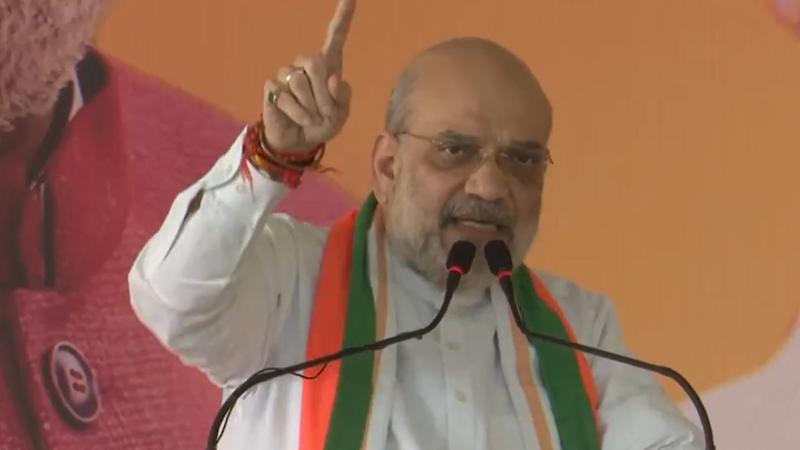Published 13:18 IST, December 17th 2024
Amit Shah Proposes Review of One Nation, One Election by Joint Parliamentary Committee
Union Law Minister Arjun Ram Meghwal tabled the One Nation One Election Bill in the Lok Sabha today (Tuesday) (December 3).

New Delhi: Amit Shah , the Union Home Minister on Tuesday (December 15) proposed to review the 'One Nation, One Election' bill by the Joint Parliamentary Committee.
As voting over the JPC Review of the One Nation One Election Bill concludes, 269 MPs have voted in favour of the bill while 198 votes have been received against the review. The Lok Sabha has been adjourned till 3:00 pm.
Union Law Minister Arjun Ram Meghwal tabled the One Nation One Election Bill in the Lok Sabha today (Tuesday) (December 3).
Meghwal introduced the Constitution (One Hundred and Twenty-Ninth Amendment) Bill, 2024, in the Lok Sabha, paving the way for the 'One Nation, One Election' proposal.
The bill aims to hold simultaneous elections for the Lok Sabha and the state assemblies across the country. The bill has been tabled in the Lok Sabha amid a lot of ruckus and chaos from the Opposition.
While tabling the bill in the lower house, Arjun Meghwal said, "I will talk on legislative competency; autonomy issue was also raised. No constitutional principle is being violated with the introduction of this bill, we are not amending any article. ONOP is pending since last 41 years and it was PM Modi who took cognizance of it. He has far-sightedness and capability to bring change."
Additionally, the law minister is likely to introduce Bills to amend the Government of Union Territories Act, 1963, the Government of National Capital Territory of Delhi Act, 1991, and the Jammu and Kashmir Reorganisation Act, 2019, as per the day's schedule.
What is One Nation One Election?
'One Nation, One Election' refers to the simultaneous conduct of Lok Sabha, Assembly, and local body (urban or rural) elections in the same year, if not the same time. This practice was followed from independence time which later discontinued in 1967, covering four polls starting with the first general election in 1951-52.
The premature dissolution of certain state governments in 1968-69 and the early termination of the Lok Sabha in 1970 disrupted the cycle of simultaneous elections. Currently, only seven states hold elections concurrently with the Lok Sabha polls. Among them, Andhra Pradesh, Odisha , and Sikkim participated in simultaneous voting during the April-June Lok Sabha elections earlier this year. States like Maharashtra , Haryana , and Jharkhand conduct their polls in the latter half of a general election year.
The idea of holding simultaneous elections is not new to India. In the early years after independence, elections for the Lok Sabha and State Assemblies were held together in 1951-52, 1957, 1962, and 1967. However, this practice was disrupted when several State Assemblies were dissolved prematurely in 1968 and 1969. This led to the decoupling of assembly and parliamentary elections. Subsequently, the Fourth Lok Sabha also saw its term cut short, leading to early elections in 1971. While the First, Second, and Third Lok Sabhas completed their full five-year terms, political instability in later years often resulted in premature dissolution.
Get Current Updates on India News, Entertainment News along with Latest News and Top Headlines from India and around the world.
Updated 14:04 IST, December 17th 2024




